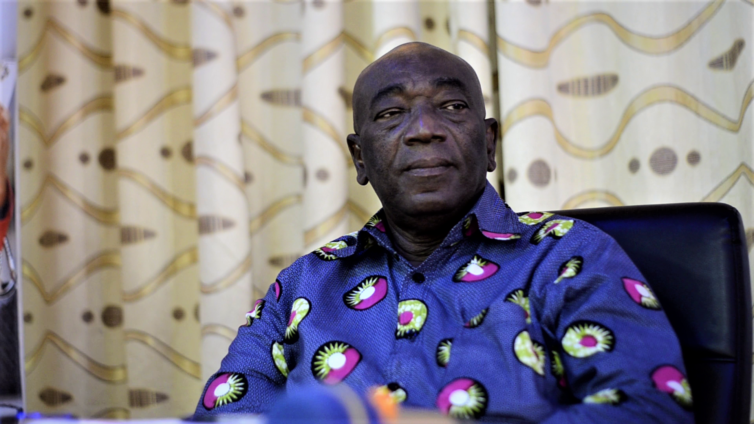The Deputy General-Secretary of the Trade Union Congress (TUC), Joshua Ansah, has suggested that should the government fail to meet the demands of organized labour in the ongoing wage negotiation, workers would begin to regulate their working days.
According to him, taking into consideration the prevailing harsh economic conditions and the low salaries they receive from government, should government fail to upward adjust their base pay by 60%, they would start working fewer days.
He explained that working five days a week under these strenuous economic conditions has taken a huge toll on workers and thus it is only reasonable that the government heeds their request or prepare to accommodate fewer working days for workers.
“So if I’m negotiating with you and you’re unable to be fair, you’re unable to be truthful to yourself to tell us what is in the kitty? Who is taking what? And you tell us the economy is bad and there’s no money, government cannot pay, government cannot afford, then I’m inclined to go with brother Carbonu by saying that okay then we can also say that we’ll stay at home and come to work once in a week or twice in a week.
“Because somebody taking 500 cedis and paying transport of more than 1200 per month, how do you expect that person to come to work every day? How do you expect that person even to get something to eat after paying for the transportation? A family of two; a wife a husband and maybe two kids, how will they live in this very country?
“So all these are the things that are very real in the face of Ghanaian workers and it’s enough. And it is time that we try to bring practicality to bear. The ‘no money’, ‘no money’ syndrome, government cannot afford the ability to pay these things must be looked up once again.
“We don’t think this is the time for government to tell us the money is not there and there’s no way to [pay us] then if the money is not there, let us find a way of regulating our work whether to come to work once in a week, twice in a week and so on and so forth to commensurate the money that we’re being paid,” he said.
Organised Labour has proposed a 60 percent increment in base pay for the year 2023 as they begin negotiations with the government.
In a letter signed by TUC General Secretary, Dr. Yaw Baah and Isaac Bampoe Addo, Chairman of the forum of Public Sector Workers, Organised Labour cited the rising inflation and the 15% Cost of Living Allowance (COLA) granted on the National Daily Minimum Wage as grounds for their proposal.
“Due to the inflationary trends and the fact that 15% COLA has been granted on the National Daily Minimum Wage (NDMw). We humbly propose that a 60% increase on the 2022 Base Pay should be considered,” a portion of the letter read.
According to Organised Labour, a huge gap has been created between the National Daily Minimum Wage and the Base Pay as a result of accepting COLA instead of normal salary increase and granting increases in the National Daily Minimum Wage.
The group said currently, the 2022 daily Base Pay on the 2022 Single Spine Salary Structure (SSSS) is 16.26% below the 2022 daily minimum wage.
“In order to close the gap and restore the 10% point with respect to the National Daily Minimum Wage (NDMW), the daily Base Pay for 2023 should be GH¢l4.88 plus 10% which is GH¢16.37,” Organised Labour said.
They, therefore, want the annual Base Pay on the Single Spine Salary Structure (SSSS) for 2023 to be increased to GH¢5,303.23 from the current GH¢3,672.84.
Latest Stories
-
Brazil great Marta to retire from international duty
12 mins -
Otto Addo was forced to accept Black Stars coaching job – Mohammed Polo
17 mins -
Karim Zito qualified to be Black Stars head coach – Mohammed Polo
23 mins -
Platinum Cup makes return on April 27
29 mins -
MoE is not changing uniforms or re-painting all public schools – Kwasi Kwarteng clarifies
1 hour -
16th Africa Aquatics Swimming Championships: Nubia and Harry to represent Ghana in Angola
1 hour -
Four defendants in NDA case by OSP open defence today
1 hour -
GFA commissions first set of floodlights at Ghanaman Soccer Centre of Excellence
1 hour -
Basic public school uniform change an initiative, not a policy – Kwasi Kwarteng
1 hour -
Bawumia appeals for peace in Gonjaland, donates GHȼ100K, bull
1 hour -
Drake: AI Tupac track gone from rapper’s Instagram after legal row
2 hours -
Repainting schools, changing uniforms a misplaced priority – Joy FM listeners on rebranding of basic public schools
2 hours -
UEFA U-16 Tournament: Black Starlets bounce back with 5-1 win over Serbia
2 hours -
There’s nothing strange about changing colours for basic public schools – Education Ministry PRO
2 hours -
Diana Asamoah causes arrest of personal assistant over GH₵4k MoMo theft
2 hours

